Downloaded from www.mymenopausecentre.com
Direct URL: https://www.mymenopausecentre.com/symptoms/fatigue/
Menopause and fatigue
Hormonal changes of the menopause can cause tiredness and fatigue. It can be harder to sleep at night, even without hot flushes and night sweats.
Explore
Book an appointment
The highly experienced doctors and nurses in our menopause clinic are here to help you. Appointments from £190.
Book An AppointmentIf you would like to learn more about the impact of your symptom(s) complete our free online menopause questionnaire here.
What is menopause-related fatigue?
Many of the women we talk to tell us how they frequently feel tired and run down. You may find you have less energy than usual and feel mentally and physically exhausted. This can affect the quality of your working and personal life as you go through the menopause.
Fatigue often goes hand in hand with sleep issues. Many women tell us that they fall asleep when they get home from work or feel their get-up-and-go has got up and gone!
Some struggle to do anything apart from the basics and run the risk of falling into a vicious cycle of decreasing activity and a ‘shrinking life’ by cutting out activities.
What causes fatigue?
Although tiredness is part of everyday life, it also goes hand in hand with the menopause. It’s directly related to menopause symptoms which can themselves be tiring and interfere with sleep.
Decreasing hormone levels are one of the menopause’s significant challenges and can cause fatigue as oestrogen and testosterone fluctuations can change the way your brain functions. Falling oestrogen levels are also linked to an increase in cortisol, which can also increase fatigue.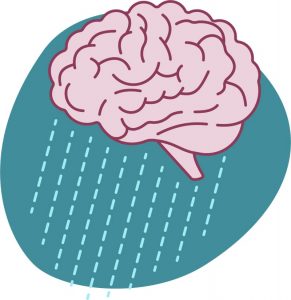
Psychological factors can also cause fatigue. These include depression, anxiety and mood swings. This can be related to falling hormone levels, but can also be due to the life and work stresses that can occur around the same time as the menopause.
Many women stop exercising during the menopause. Hot flushes, bladder issues and lack of time are just some of the reasons they give up. Reducing exercise can lead to fatigue in itself. But exercise results in the release of endorphins which have a variety of actions, including the triggering of positive feelings in the body. Exercise can boost self-esteem and improve sleep. You can see why not exercising can trigger a vicious cycle of low energy and mood.
Similarly, you may find that you lose interest in socialising and other similar activities. Stopping these pleasurable activities can put you into a cycle of negative, unhelpful thinking, adding to low mood, anxiety and more fatigue.
Physical symptoms of the menopause can interfere with sleep and so lead to tiredness. These include night sweats, getting up in the night to pass urine, and joint pains.
However, tiredness is not necessarily all related to the menopause. It can also be a symptom of several medical conditions, including:
- Low thyroid function
- Nutritional deficiencies
- Low B12 and folic acid
- Low iron and anaemia
Illnesses such as diabetes, heart failure and heart diseases, chest illnesses (such as asthma), Addison’s disease, and bowel issues can also be a cause.
Pain, carbon monoxide poisoning, sleep apnoea, chronic fatigue, pain, infections (such as the lingering effects of viral infections) and medication are all possible causes of fatigue as well.
Although this list is long, it isn’t exhaustive, so if you have persistent tiredness and fatigue, please see your doctor.
How many women typically experience fatigue?
Tiredness and fatigue are common symptoms of the menopause. In a recent survey, almost 50% of women aged between 45 and 65 complained of lack of energy related to the menopause[1].
In another survey, conducted among women at work who are in the menopause transition, over 50% reported low concentration, tiredness and poor memory as the menopause symptoms which most impact work[2].
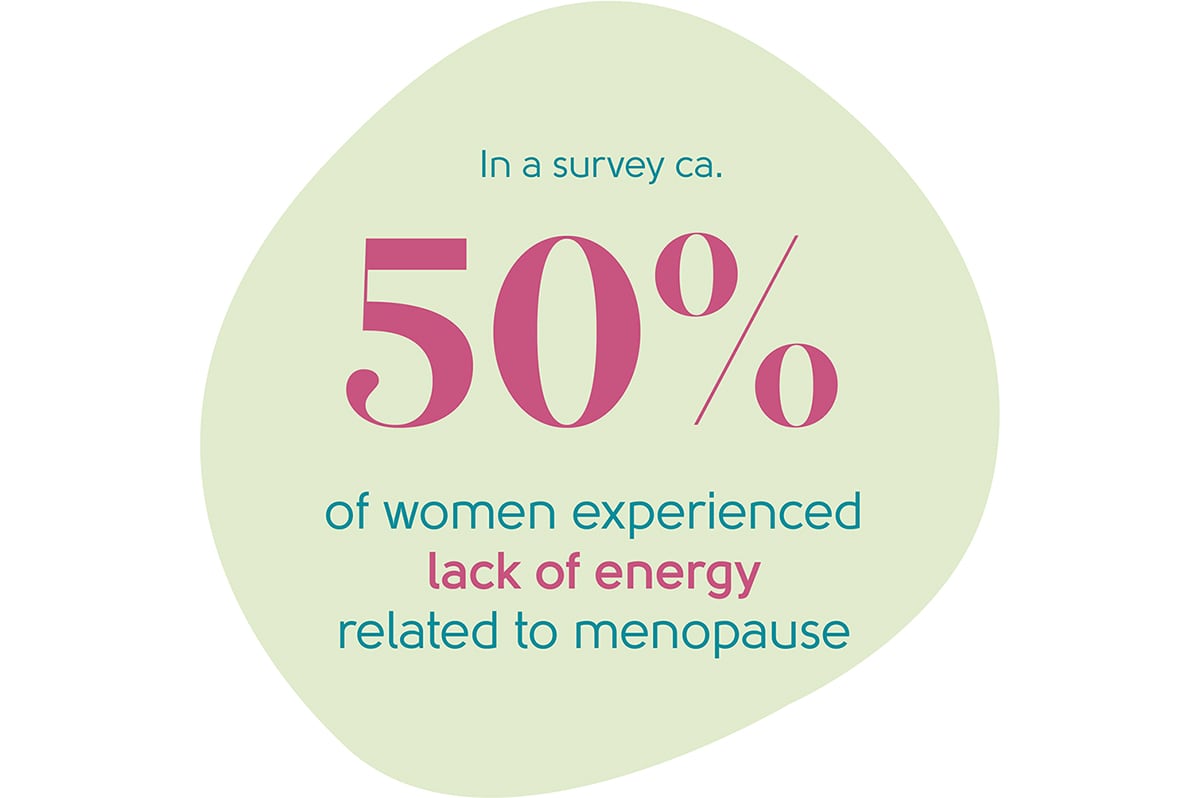
Is fatigue linked to any particular stage of the menopause?
Fatigue can affect all stages of the menopause. Like most menopause symptoms, it may gradually reduce in the postmenopause, though this can take time.
How can fatigue be treated?
If you simply can’t seem to shake off your tiredness and fatigue, please go and see your doctor, particularly if you have physical symptoms too. Blood tests may help rule out more severe conditions.
Other things you can do include the following:
Sleep
Being well-rested can help give you a new lease of life. Here’s more information about sleep issues and how to treat them.
Exercise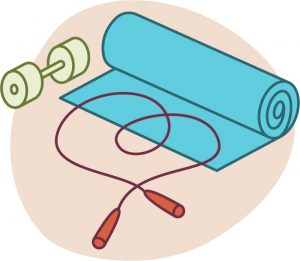
Even a little bit of exercise will improve your sense of wellbeing, your mood and your sleep, and you may find you have more energy as a result. Our friends at Her Spirit can help you on your journey.
Nutrition
Have a good look at your diet. Make sure you are following healthy diet advice, cut right down on sugar and energy drinks, and make sure you stay well hydrated. You can find out more about our nutrition partner here.
Avoid alcohol
Alcohol can result in disturbed sleep and also impact the quality of sleep.
HRT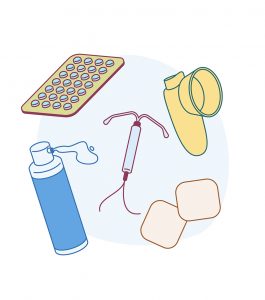
Some women find that Hormone Replacement Therapy (HRT) helps with their fatigue. HRT is an effective way of managing menopause symptoms and can improve the overall quality of your life, energy levels and sleep[3]. It’s worth understanding the rewards and small risks of HRT. You can find everything you need to know about HRT here.
Manage your mood and anxiety levels
It’s easier said than done, but having a positive outlook can work wonders. See our information on anxiety and depression.
Mindfulness
Finding ways to relax can be helpful. Some people turn to meditation or yoga, and there are lots of great apps and tutorials out there. You should never feel guilty about taking some time for yourself. Here are our top apps for mindfulness and relaxation.
Cognitive Behavioural Therapy (CBT)
Cognitive behavioural therapy is a good way of challenging your vicious cycles of fatigue and unhelpful thinking. CBT can help you realise that tiredness and fatigue result in you doing fewer activities – which in turn increases fatigue and that feeling of lack of motivation that you may be experiencing. You can learn more about our CBT partners Sue Makin and Claire Lloyd.
Be realistic about what you can achieve
The menopause may be a good time to appraise where you’re at, what you want to do and how to make it happen. Perhaps you need to break down tasks into smaller chunks rather than rush at things all at once.
What next?
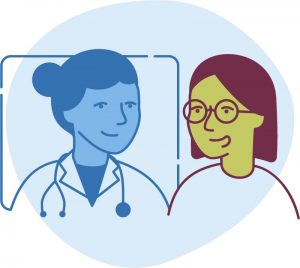 If you’re concerned about tiredness and fatigue, you should see your GP. If you would like to discuss your symptoms in relation to the menopause, book an appointment with our menopause clinic.
If you’re concerned about tiredness and fatigue, you should see your GP. If you would like to discuss your symptoms in relation to the menopause, book an appointment with our menopause clinic.
If you think you may be experiencing symptoms of the menopause transition, you can learn more with our symptom checker or by taking our Menopause Questionnaire.
You can also find more information about the menopause transition at the British Menopause Society and the National Institute for Health and Care Excellence.
Authored by:
Dr Clare Spencer
Registered menopause specialist, GP and co-founder; see Dr Clare in person at The Spire Hospital, Leeds or online
Last updated:
07/04/2021
Book an appointment
The highly experienced doctors and nurses in our menopause clinic are here to help you. Appointments from £190.
Book An AppointmentLearn more
Join the pause. community
We’ve created pause. as a space for women to come together and share stories about their menopause experience, ask questions, and to find support and inspiration. We'll also share the latest news and updates on the menopause from our experts.
Want to be the first to hear our latest news? Join our pause. community today.
Share your email to receive the latest news, updates and information on new products and treatments from My Menopause Centre and our pause. community. You can unsubscribe at any time.
We're committed to protecting and respecting your privacy - see our Privacy Policy and Terms and Conditions

Book a consultation
Whether you want to discuss your symptoms, create a treatment plan that's right for you, understand some test results or have a check-up, the highly experienced doctors and nurses in our menopause clinic are here to help you.
Book nowReferences
-
Source: Currie H, Moger SJ. Menopause – Understanding the impact on women and their partners. Post Reproductive Health. 2019;25(4):183-190.
-
Source: Griffiths A, MacLennan SJ, Hassard J. Menopause and work: an electronic survey of employees’ attitudes in the UK. Maturitas. 2013 Oct;76(2).
-
Source: Newson, LR. Best practice for HRT: unpicking the evidence.Br J Gen Pract 2016; 66: 597–598.
Contact My Menopause Centre
- General enquiries: hello@mymenopausecentre.com
- Book appointments online: Log into your account and go to 'My appointments'
- Book appointments by phone: 0333 444 1067
- Website: https://www.mymenopausecentre.com


















